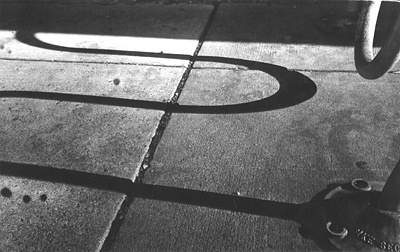All Nonfiction
- Bullying
- Books
- Academic
- Author Interviews
- Celebrity interviews
- College Articles
- College Essays
- Educator of the Year
- Heroes
- Interviews
- Memoir
- Personal Experience
- Sports
- Travel & Culture
All Opinions
- Bullying
- Current Events / Politics
- Discrimination
- Drugs / Alcohol / Smoking
- Entertainment / Celebrities
- Environment
- Love / Relationships
- Movies / Music / TV
- Pop Culture / Trends
- School / College
- Social Issues / Civics
- Spirituality / Religion
- Sports / Hobbies
All Hot Topics
- Bullying
- Community Service
- Environment
- Health
- Letters to the Editor
- Pride & Prejudice
- What Matters
- Back
Summer Guide
- Program Links
- Program Reviews
- Back
College Guide
- College Links
- College Reviews
- College Essays
- College Articles
- Back
The 400 Blows
At first, the film caught my attention because I’d been hearing about all these French “New Wave” films and I wanted to see one myself. However, nothing could’ve prepared me for the sheer emotional impact this unforgettable picture made on me. Basically, the plot follows the everyday life of a 15 year old boy named Antoine as he fumbles through school, struggles through life at home, and sneaks away with his friends, all while being surrounded by strict teachers, bullying parents, and other hostile adults. Not that Antonie turns out to be any better, really. In fact, he even runs away from school and home, gets sent to a reformation camp (which he also runs away from), lies to most every adult figure he meets, and even steals a typewriter (which gets him sent to the reformation camp in the first place). Despite all this, the film never shies away from it’s heart-wrenching moments, though they’re never ever overly sentimental. For example, take the scene where Antoine is being sent to detention camp in the back of a police truck. Seeing all the memories of his childhood pass by him, tears ever so slowly cascade down his face. Or the tense conclusion when Antoine frantically runs from reformation camp. Eventually arriving at a deserted beach, he splashes in the water for a bit before looking at the camera. We get a brief freeze-frame of his indifferent face. Then the movie’s over. Few scenes have had as much impact on me as these did. What makes them so masterful is that again, the film is never ever sentimental, schmaltzy, clichéd, nostalgic, or mushy. In this day and age especially, when about 95% of Hollywood’s dramas overly rely on all of those things, it’s very refreshing to FINALLY discover an antidote to whiny, shrill, predictable, and utterly stupid Hollywood “tearjerkers”. What really worries me is that Hollywood hasn’t really produced any more films like the one in review here (hint hint….). Anyway, the film first struck me as being very similar to another French film I had seen a while back called “The Red Balloon” in terms of both setting and language. However, while “The Red Balloon” was a (relatively) light-hearted full-colored flick about a boy who forms a friendship with a special red balloon, “The 400 Blows” just depicts an ordinary French teenager’s life. Again, unlike so many recent Hollywood dramas that quickly shade into faux sentimentality and blandness, The 400 Blows is slow (but never boring), quiet, touching, introspective, and ultimately one of the greatest films ever made. In fact, François Truffaut did such a good job on the movie that I’m even almost tempted to say that he’s one of the best directors of all time, period. Nothing ever looks awkward or out of place, not even the surprising plot twist that leads to the film’s shattering conclusion (which would lead to several lesser-known sequels, none of which I have seen). So in a nutshell, I highly recommend “The 400 Blows” to everyone reading this, even if you’re not really into foreign films.

Similar Articles
JOIN THE DISCUSSION
This article has 0 comments.
